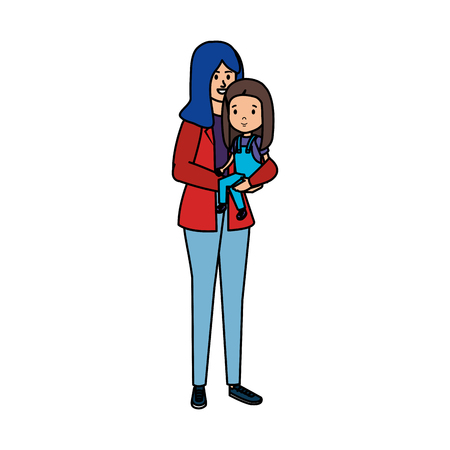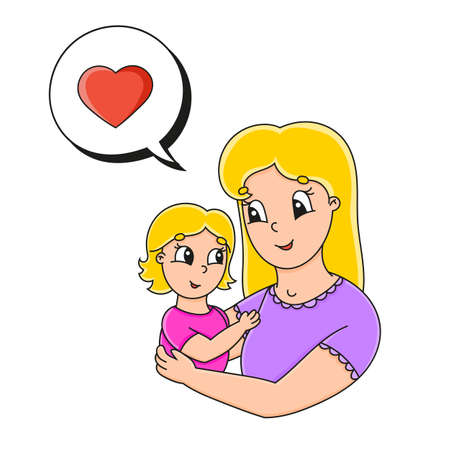Introduction to Baby Illnesses in the UK
Becoming a new parent in the UK is both exciting and, let’s be honest, a bit daunting—especially when it comes to understanding all those sniffles, rashes, and fevers that seem to pop up out of nowhere. As a first-time dad myself, I quickly learned that British weather and nursery runs can bring a whole host of common baby illnesses right to your doorstep. Whether you’re navigating your little one’s first cold or worrying about more serious conditions like bronchiolitis, knowing what’s normal here—and what’s not—can make all the difference. Local knowledge is key: some illnesses are more common in the UK due to our damp climate and communal childcare settings, so it’s worth getting clued up on what to watch for and when it’s time to call the GP. Here’s a quick look at some of the most frequent health concerns for babies in Britain:
| Common Illness | Typical Season | Where It Spreads |
|---|---|---|
| Common Cold | Autumn & Winter | Nurseries, Playgroups |
| Bronchiolitis (RSV) | Winter | Childcare Settings |
| Chickenpox | All Year Round | Home & School |
| Hand, Foot & Mouth Disease | Spring & Summer | Nappy Changing Areas, Soft Play Centres |
This guide will walk you through what these illnesses look like, how they’re treated here in the UK, and when you might need extra help. From my own experience—with plenty of panicky late-night NHS 111 calls—I can say that being prepared really does ease some of the stress that comes with parenting in Britain.
2. Recognising Symptoms: What’s Normal and When to Worry
As a new dad myself, I know how nerve-wracking it can be when your little one suddenly seems “off”. In the UK, parents often swap stories about sleepless nights and unexplained cries at playgroups, but knowing what’s just a typical baby quirk and what could be a sign of illness is crucial. Here’s a straightforward guide to help you spot common symptoms in newborns and infants, and tips on when you should ring your GP or head to A&E.
Common Signs of Illness in Babies
| Symptom | What’s Normal? | When to Worry? |
|---|---|---|
| Fever (temperature over 38°C) | Babies can get slightly warm after vaccinations or during teething. | If your baby is under 3 months and has a temperature over 38°C, or if they seem very unwell, seek medical advice straight away. |
| Rashes | Mild rashes are common with viral infections or heat. | If the rash doesn’t fade when pressed (the ‘glass test’), or comes with fever, see a doctor immediately. |
| Unsettled Behaviour | A bit of fussiness, especially during growth spurts or tiredness, is normal. | If your baby is inconsolable, lethargic, or not feeding as usual, it’s time to get checked out. |
| Coughs & Colds | Mild sniffles are par for the course in British nurseries! | If breathing seems laboured, there are pauses in breathing, or persistent wheezing, seek urgent help. |
| Nappies (poo & wee) | Changes happen as diet changes – for instance, green poo with formula milk. | No wet nappies for over 12 hours, blood in stools, or repeated vomiting are red flags. |
Practical Tips from One Parent to Another
I always keep a digital thermometer handy (the underarm type is popular here). Trust your gut—if you think something’s not right, don’t hesitate to call NHS 111 for advice. It’s perfectly normal to feel anxious; even seasoned parents find themselves double-checking symptoms now and then!
When in Doubt: Seek Help
The NHS offers excellent guidance for parents. If your baby shows any signs listed in the “when to worry” column above—or if you simply can’t shake off that uneasy feeling—it’s never wrong to ask for professional help. You’re doing your best, and sometimes reassurance from a GP or health visitor is exactly what you need.

3. Frequent Baby Illnesses and Their Management
As a new dad living in the UK, I quickly realised that babies are magnets for germs, especially during their first few years at nursery or baby groups. It can feel overwhelming when your little one catches something every few weeks, but knowing what to expect and how to manage these common illnesses makes all the difference. Here’s a breakdown of the most frequent baby illnesses in Britain and some tried-and-tested home care tips from my own experience.
Common Baby Illnesses in the UK
| Illness | Symptoms | Usual Duration | When to Seek Help |
|---|---|---|---|
| Colds | Runny nose, sneezing, mild fever, cough | 1–2 weeks | If baby is under 3 months with a fever or struggling to breathe |
| Viral Infections (e.g., RSV) | Coughing, wheezing, poor feeding, low-grade fever | Up to 2 weeks | If breathing is rapid or laboured, or if baby becomes lethargic |
| Chickenpox | Itchy red spots, mild fever, tiredness | 7–10 days | If spots look infected or baby is very unwell |
| Bronchiolitis | Coughing, fast breathing, difficulty feeding, wheezing | 1–2 weeks | If baby is under 6 months or having trouble breathing/feeding |
Practical Home Care Advice
- Colds: Keep your baby hydrated with frequent feeds (breastmilk or formula). Use saline nasal drops and a bulb syringe to clear stuffy noses—this trick saved us many sleepless nights! A cool-mist humidifier can also help ease congestion.
- Viral Infections: Rest is key. Monitor temperature with a digital thermometer and dress your baby in light layers if they have a mild fever. Paracetamol (like Calpol) can be given if advised by your GP or health visitor—always double-check the dosage for their age and weight.
- Chickenpox: Keep nails short to stop scratching and try an oat bath or calamine lotion for relief from itching. My wife swears by cotton mittens for our little one during chickenpox outbreaks at nursery!
- Bronchiolitis: Offer smaller feeds more frequently if breathing is hard work. Keep an eye on wet nappies as a sign of hydration. If you’re worried about their breathing (for example, if their chest seems to be sucking in), call NHS 111 or see your GP promptly.
A Note on NHS Resources
The NHS website offers up-to-date advice tailored for families in the UK—bookmark it for those late-night worries. Most importantly, trust your instincts: if something doesn’t seem right with your baby, it’s always better to get them checked out. Parenting here means balancing reassurance from other mums and dads at playgroup with professional guidance—it really does take a village!
4. When to Call the GP, NHS 111, or Visit A&E
As a new dad navigating those sleepless nights in the UK, figuring out when your little one needs a doctor can be pretty stressful. Luckily, we’ve got the NHS, but knowing whether to call your family GP, ring NHS 111, or dash straight to A&E isn’t always obvious—especially when you’re running on fumes and worrying about every sniffle! Here’s a handy breakdown tailored for us UK parents:
| Situation | What to Do |
|---|---|
| Mild symptoms (like a runny nose, mild cough, low-grade fever) | Book an appointment with your GP. Most surgeries offer same-day slots for babies. If unsure, call your surgery’s receptionist—they’re used to nervous parents! |
| Non-urgent medical questions (e.g. rash with no other symptoms, feeding queries) | Ring NHS 111. The advisers are brilliant at talking you through what’s normal and what might need checking out by a nurse or doctor. |
| Worsening symptoms (e.g. high fever not coming down with paracetamol, breathing difficulties, persistent vomiting/diarrhoea) | If it’s during working hours, call your GP urgently. Out of hours? NHS 111 will help decide if you need an urgent care centre or A&E. |
| Emergency signs (e.g. blue lips/tongue, floppy/unresponsive baby, seizures, severe breathing difficulty) | Go straight to A&E, or dial 999. Don’t wait—NHS staff would rather you overreact than miss something serious! |
Handy Tips for Navigating the NHS as a Parent
- Always trust your gut—if something feels “off”, get help sooner rather than later.
- Keep NHS 111 saved in your mobile. They’re open 24/7 and can arrange out-of-hours appointments if needed.
- If you’re ever unsure about medication doses or whether symptoms are normal for your baby’s age, ask your health visitor or pharmacist—they’re invaluable resources on the high street.
The British Approach: “Better Safe Than Sorry”
No one will judge you for being cautious—UK healthcare professionals see nervous parents every day. My personal experience? I once bundled our son into A&E at 2am because he wouldn’t stop crying and had a temperature—I was worried I’d wasted their time, but the paediatric nurses reassured me that parents’ instincts matter most. So even if it turns out to be nothing serious, that peace of mind is worth it. Remember: You’re not alone on this journey!
5. Immunisations and Preventative Care in the UK
As a new dad navigating parenthood in the UK, one thing that’s stood out for me is how organised and thorough the NHS immunisation schedule is. It’s designed to give our little ones the best protection against a range of serious illnesses right from the get-go. Here’s what you need to know about baby immunisations and preventative care, based on my own experience with our family GP and health visitor.
NHS Baby Immunisation Schedule: What to Expect
The NHS provides all routine baby vaccines free of charge, and they’re usually given at your local GP surgery or health centre. Appointments are typically set up automatically, but if you’re not sure when your baby’s jabs are due, you can always check with your health visitor or use the NHS app. Below is a quick overview of the main vaccinations and the ages they’re given:
| Babys Age | Vaccine(s) Given | Protection Against |
|---|---|---|
| 8 weeks | 6-in-1 (DTaP/IPV/Hib/HepB), Rotavirus, MenB, PCV | Diphtheria, Tetanus, Whooping cough, Polio, Hib, Hepatitis B, Rotavirus, Meningitis B, Pneumococcal disease |
| 12 weeks | 6-in-1 (2nd dose), Rotavirus (2nd dose), MenC/HiB | Same as above plus Meningitis C |
| 16 weeks | 6-in-1 (3rd dose), MenB (2nd dose), PCV (2nd dose) | Continued protection for above diseases |
| 1 year | Hib/MenC booster, MMR, PCV booster, MenB booster | Mumps, Measles, Rubella, further protection for previous diseases |
How to Prepare for Your Baby’s Jabs
If you’re anything like me, you’ll probably feel a bit nervous before your baby’s first set of injections. It helps to dress them in easy-to-remove clothing and bring their favourite toy or comforter. Some babies might get a mild fever or be a bit grumpy afterwards – paracetamol (infant version) is recommended after certain jabs like MenB to help prevent fever.
Preventing Common Illnesses Beyond Vaccinations
While immunisations form the backbone of preventative care in the UK, there are other everyday habits we can adopt to keep our babies healthy:
- Handwashing: Washing hands regularly—yours and your babys—reduces the spread of germs.
- Avoid crowded places during outbreaks: Especially in winter when bugs go around nurseries and playgroups.
- No smoking indoors: Secondhand smoke increases risk of chest infections and cot death (SIDS).
- Keep up with health checks: Attend regular reviews with your health visitor to spot any issues early.
- Breastfeeding if possible: Provides extra antibodies that help fight infections.
A Personal Note from One Dad to Another
The immunisation journey felt daunting at first—I worried about side effects and whether I was doing enough. But seeing my little one protected gives real peace of mind. The NHS team are brilliant at answering questions, so never hesitate to ask if you’re unsure about anything. We’re all learning as we go!
6. Looking After Yourself as a Parent
As a new parent in the UK, it’s easy to focus all your attention on your little one—especially when they’re unwell. I remember feeling completely overwhelmed during my baby’s first bout of bronchiolitis. But taking care of yourself is just as important as looking after your poorly baby. Here are some practical tips and local resources that helped me, and may help you too.
Managing Stress When Your Baby Is Unwell
It’s normal to feel stressed, anxious, or even helpless when your baby is ill. Here’s what worked for me and other UK parents:
- Accept help: Let friends and family lend a hand, whether it’s cooking a meal or watching the baby while you nap.
- Take short breaks: Even five minutes with a cuppa can make a difference. Step outside for fresh air if you can.
- Share worries: Chatting with other parents or your health visitor can be a real lifesaver.
- Keep perspective: Remember, most common illnesses like colds and mild fevers pass quickly.
Useful UK Support Networks
The UK offers lots of support for parents facing tough times. Here’s a handy table of key resources:
| Resource | What They Offer | How to Access |
|---|---|---|
| NHS 111 | 24/7 medical advice (non-emergency) | Call 111 or visit 111.nhs.uk |
| NCT (National Childbirth Trust) | Parent support groups & helpline | nct.org.uk |
| PANDAS Foundation | Mental health support for parents | pandasfoundation.org.uk |
| Mumsnet & Netmums Forums | Peer-to-peer advice and sharing experiences | mumsnet.com, netmums.com |
| Your Local Children’s Centre | Drop-in sessions, parenting courses, playgroups | Check your council website for locations |
| Samaritans | Emotional support if you’re struggling to cope | Call 116 123 free any time or samaritans.org |
A Few More Tips from My Own Experience:
- If you’re really run down, don’t hesitate to see your GP—you matter too!
- I found joining a local baby group not only helped my child socialise but gave me a chance to swap stories with other parents in the same boat.
- No question is too small for your health visitor—they’ve seen it all before!
- If you ever feel low for more than a few days, reach out—postnatal stress is common and nothing to be ashamed of.
You’re Not Alone—Reach Out If You Need To!
Caring for an ill baby is tough, but remember there’s plenty of help out there across the UK. Don’t be afraid to lean on these networks—you’ll be better able to look after your little one when you look after yourself, too.

